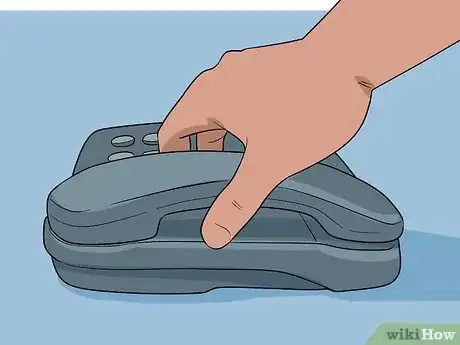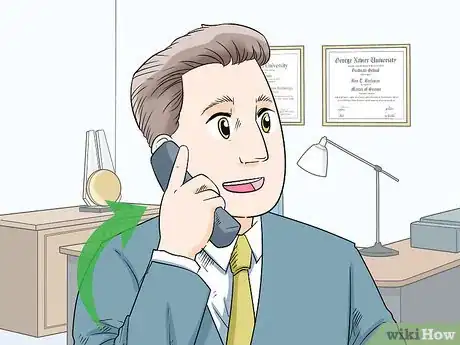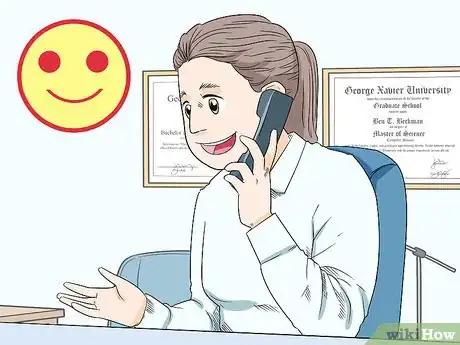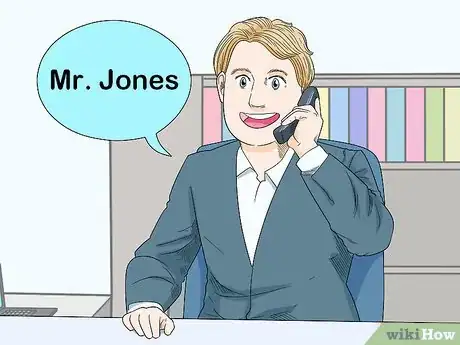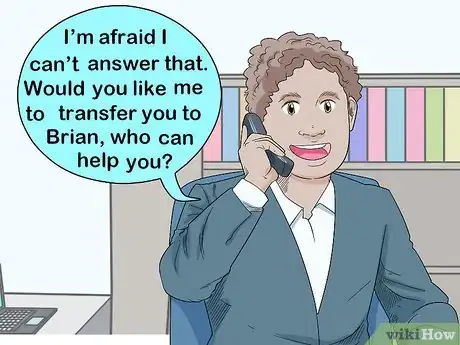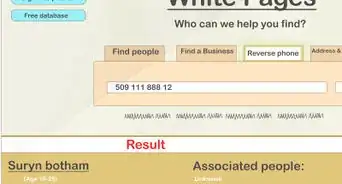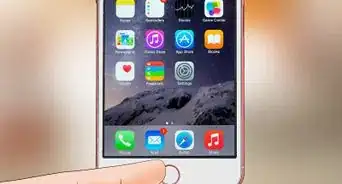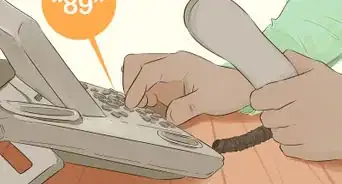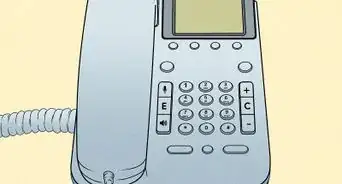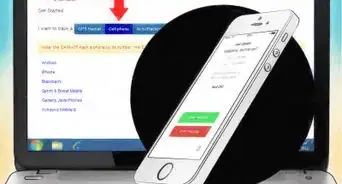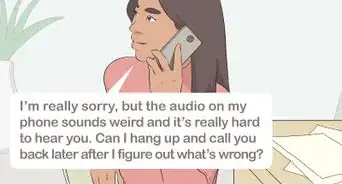This article was co-authored by Tami Claytor. Tami Claytor is an Etiquette Coach, Image Consultant, and the Owner of Always Appropriate Image and Etiquette Consulting in New York, New York. With over 20 years of experience, Tami specializes in teaching etiquette classes to individuals, students, companies, and community organizations. Tami has spent decades studying cultures through her extensive travels across five continents and has created cultural diversity workshops to promote social justice and cross-cultural awareness. She holds a BA in Economics with a concentration in International Relations from Clark University. Tami studied at the Ophelia DeVore School of Charm and the Fashion Institute of Technology, where she earned her Image Consultant Certification.
There are 7 references cited in this article, which can be found at the bottom of the page.
wikiHow marks an article as reader-approved once it receives enough positive feedback. In this case, 96% of readers who voted found the article helpful, earning it our reader-approved status.
This article has been viewed 225,838 times.
Projecting a professional image at work is important for career success. Answering the telephone is something that almost every employee does, regardless of their position in the company. Answering the right way will project a positive tone, help the caller feel comfortable, and set you up to help answer whatever questions they may have.
Steps
Opening the Call
-
1Answer quickly. If you are in a business setting, it is rude to keep people waiting. Get to the phone and answer before the third ring.[1]
-
2Put the phone up to your face. While you want to move quickly when answering the phone, you should be patient enough to actually get the mouthpiece to your face. Make sure you don’t start talking until the phone is right up against you so that the person on the other end doesn’t miss any information.[2]Advertisement
-
3Take a deep breath before answering. Once the phone is up to your face, take a deep breath before giving your introduction. This will help you keep calm and controlled, making it easier to speak slowly and collect your thoughts.[3]
-
4Introduce your business and yourself.[4] You want to make sure the other person on the line has called the right place and person, so make sure they know who you and your company are. Make sure you lead with the business name. You may want to give yourself a scripted greeting so that you don’t have to think about what to say when the phone rings. This message will change slightly depending on your circumstances.
- If you are a receptionist, it is important that you identify the whole company, as you are the caller’s gateway to whatever they need. Something simple like “Hello, this is wikiHow Enterprises, Nick speaking. How can I help you?” is good.[5] This lets the caller know who you and your business are, and gives them an opening to continue talking.[6] If you are a personal receptionist, identify the person you are working for (“This is Mr. Miller’s office, Nick speaking”), as that is the person your caller is trying to reach.[7]
- If you are part of an office, let the other person know what you do so they know what kinds of questions they can ask. Identifying yourself by saying “Hello, this is Jessica in Accounting” lets the other person know if they have reached the office or person they want, and if they should talk to someone else.
-
5Keep a pen and notepad near the phone. This will let you jot down information quickly if the person wants to leave a message or give you other information. You don’t want to keep your caller waiting while you search for something to write with.
Speaking Professionally
-
1
-
2Speak clearly and professionally. This is a professional setting, and it is important that both you and the other person understand each other clearly and precisely. Speak slowly and enunciate your words to make sure your information gets across.
- Avoid slang words like “Yep,” “Sure,” or “Nah.” Instead, speak with clear words like “Yes” and “No.” You don’t want any confusion between you and the caller over what either person said. Don’t forget common polite phrases such as “Thank you” and “You’re welcome” when appropriate.
- If you need to give someone specific numbers or letters, say passing along a name or phone number, it can be good to familiarize yourself with the phonetic alphabet. That way you can avoid confusion over letters that sound similar, like “B” and “V,” with helpful hints like “V as in Victory.”
-
3Address the caller professionally. Use the person’s title (“Mr. Jones”) and not their first name, especially if you do not know the caller personally. Make sure you remember their name and address them with it during the conversation.[11]
- It may be helpful to write down the person’s name after you get it in order to help you remember.
-
4Transfer the person if necessary. If someone is calling you at work, they probably have a specific problem or issue they need to resolve. If you don’t know how to answer a question or concern, don’t try. Instead, offer to transfer them to someone who can help. This also shows that you are interested and willing to help solve your caller’s problem.[12]
- Many office phone systems will have a way to transfer calls. Make sure you know if your office does, and how it works. If not, get the right person’s number, and pass that information to your caller.
- Be as polite as possible when doing this, and offer the transfer. Say something like “I’m afraid I can’t answer that. Would you like me to transfer you to Brian, who can help you?” Make sure the person on the other end agrees before changing the call.
- If someone else isn’t available, offer to take a message. Just remember to pass that message along.
-
5End the call professionally. A clear and polite “Thank you” or “Goodbye” lets the other person know that the conversation has finished and they can hang up. There shouldn't be any confusion over whether or not the conversation should continue.[13]
- Let the other person hang up. They initiated the call, so you want to let them finish whatever they needed when they called in the first place. If you hang up when the caller isn’t ready, it can appear rude, or you might miss important information.
Expert Q&A
Did you know you can get expert answers for this article?
Unlock expert answers by supporting wikiHow
-
QuestionHow do I answer the phone at work with caller ID?
 Tami ClaytorTami Claytor is an Etiquette Coach, Image Consultant, and the Owner of Always Appropriate Image and Etiquette Consulting in New York, New York. With over 20 years of experience, Tami specializes in teaching etiquette classes to individuals, students, companies, and community organizations. Tami has spent decades studying cultures through her extensive travels across five continents and has created cultural diversity workshops to promote social justice and cross-cultural awareness. She holds a BA in Economics with a concentration in International Relations from Clark University. Tami studied at the Ophelia DeVore School of Charm and the Fashion Institute of Technology, where she earned her Image Consultant Certification.
Tami ClaytorTami Claytor is an Etiquette Coach, Image Consultant, and the Owner of Always Appropriate Image and Etiquette Consulting in New York, New York. With over 20 years of experience, Tami specializes in teaching etiquette classes to individuals, students, companies, and community organizations. Tami has spent decades studying cultures through her extensive travels across five continents and has created cultural diversity workshops to promote social justice and cross-cultural awareness. She holds a BA in Economics with a concentration in International Relations from Clark University. Tami studied at the Ophelia DeVore School of Charm and the Fashion Institute of Technology, where she earned her Image Consultant Certification.
Etiquette Coach
-
QuestionHow do I introduce myself is asked?
 Community AnswerIf you are answering the phone, you could say, "This is (your name)."
Community AnswerIf you are answering the phone, you could say, "This is (your name)." -
QuestionWhat should a receptionist say if a caller asks whether someone is at work?
 Community AnswerThat answer will probably depend on your company's individual policy. Check with your manager for the most appropriate way to handle this situation. You don't want to give out specific information, but saying something like "She's out sick" or "He's not in today" should be all the information your caller needs.
Community AnswerThat answer will probably depend on your company's individual policy. Check with your manager for the most appropriate way to handle this situation. You don't want to give out specific information, but saying something like "She's out sick" or "He's not in today" should be all the information your caller needs.
References
- ↑ http://www.goodtemps.org/blog/127/the-best-way-to-answer-a-phone
- ↑ http://www.goodtemps.org/blog/127/the-best-way-to-answer-a-phone
- ↑ https://www.themuse.com/advice/what-did-you-say-4-tips-for-understanding-accents-at-work
- ↑ Tami Claytor. Etiquette Coach. Expert Interview. 29 September 2020.
- ↑ Tami Claytor. Etiquette Coach. Expert Interview. 29 September 2020.
- ↑ http://www.goodtemps.org/blog/127/the-best-way-to-answer-a-phone \
- ↑ http://www.legalsecretaries.org/articles/telephone.html
- ↑ Tami Claytor. Etiquette Coach. Expert Interview. 29 September 2020.
- ↑ http://www.goodtemps.org/blog/127/the-best-way-to-answer-a-phone
About This Article
If you are required to answer the phone at work, try to answer it before the third ring so the company appears punctual. Then, introduce the entire company, then yourself, and then ask how you can help them. For example, you could say “Hello, this is Nile Printing, John speaking. How can I help you?” To avoid missing information, make sure you have a pen and paper nearby so you can record any messages the person may give you. Scroll down for tips on how to make the rest of the call sound as natural and professional as possible!
